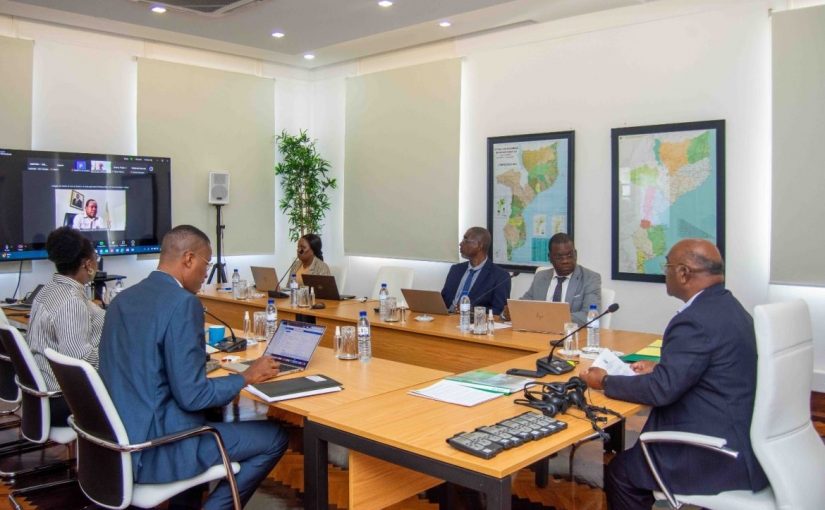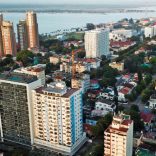IMF to visit Mozambique next month for more talks on support options
Búzi, Púnguè and Save watercourses: Mozambique and Zimbabwe sign 10-year Strategic Action Plan

The Buzi, Pungwe and Save river basins [BUPUSA] are exclusively shared by Mozambique and Zimbabwe ]Photo: Notícias]
Mozambique and Zimbabwe will ensure the protection and sustainable use of water resources in the Búzi, Púnguè and Save river basins, as well as exchanging information on matters including flow monitoring plans.
The two countries signed a 10-year Strategic Action Plan during the inaugural Council of Ministers Meeting for the Buzi, Pungwe and Save Water Courses Commission (BUPUSACOM).
The Strategic Action Programme (SAP) for the Buzi, Pungwe and Save Shared Watercourses was developed under the “Management of Competing Water Uses and Associated Ecosystems in Pungwe, Buzi, and Save Basins (GEF-BUPUSA)” project, being funded through a US$6 million grant from the Global Environment Facility (GEF) and implemented in the basins by the International Union for Conservation of Nature (IUCN).
The Global Water Partnership Southern Africa (GWPSA) is executing the project together with the two governments of Mozambique and Zimbabwe.
This first BUPUSA Council of Ministers meeting, held last week (29-11-24) in a hybrid format in Harare, focused on discussions pertaining the management of water resources in the Buzi, Pungwe and Save River Basins, which are vulnerable to extreme climatic events including droughts and floods.
The SAP was signed by Minister of Public Works, Housing and Water Resources, Carlos Mesquita and, Zimbabwe’s Minister of Lands, Agriculture, Fisheries, Water and Rural Development Anxious Jongwe Masuka.
Speaking after the signing of the instruments, Mesquita stressed that their adoption demonstrated Mozambique’s willingness to contribute to the integrated management of shared water resources within the regional cooperation framework.
“This commitment is proof that both countries recognise that only through concerted action is it possible to develop economies, create well-being for the population and address the negative impacts of extreme climate events. It also has mutual benefits in terms of guidance and guidelines to be followed in the implementation of joint agreements and projects with greater dynamism,” he said.
Minister Mesquita stressed that it is important for both countries to maintain the health of water resources in these basins, which are vulnerable to floods, high water and drought.
“Mozambique is one of the African countries most exposed to extreme climate risks, floods, intense tropical cyclones and droughts. We have been experiencing floods because we are downstream from nine of the main river basins in Southern Africa,” Mesquita explained. In order to address this situation, Mozambique must be at the forefront of implementing regional water resources programmes and operationalising regional policies and strategies in this area.
Furthermore, the two countries have implemented several joint initiatives and projects within the scope of BUPUSACOM, including the construction of six telemetric stations in Dombe, Gorongosa, Mafambisse, Metuchira, Massangena and Vila Franca do Save, which allow the measurement of river levels and assess the behaviour of river basins, particularly during the rainy season.












Leave a Reply
Be the First to Comment!
You must be logged in to post a comment.
You must be logged in to post a comment.